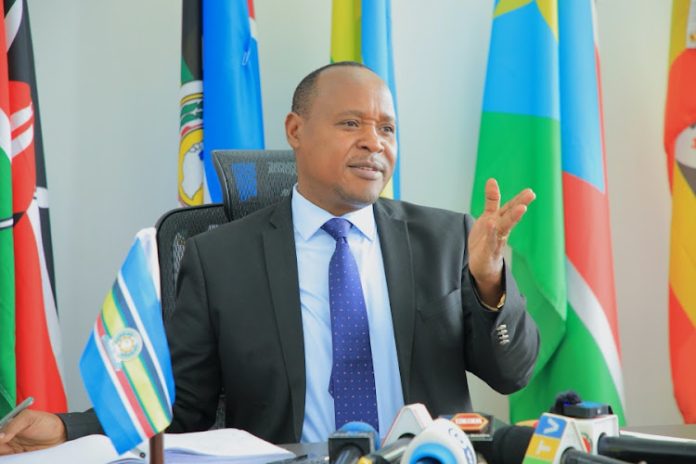Somali Magazine October 13, 2023- The ongoing clashes between the Wazalendo armed group and M23 rebels is now becoming a regional concern as per the East African Community (EAC) body. The renewed hostilities between armed groups fighting in the North Kivu region of the Eastern Democratic Republic of Congo (DRC), is a clear sign of the Luanda Process.
It’s only a few months after the ceasefire between armed groups and Congolese armed forces FARDC, brokered by regional leaders under the International Conference on the Great Lakes Region (ICGLR), also known as the Luanda Process
EAC Secretary General Dr Peter Mathuki, “These actions stand in stark contrast to the envisioned peaceful resolution of the conflict through the EAC-led Nairobi Process.”
M23 group have accused Congolese Forces of using Wazalendo as proxy, although FARDC says M23 have refused to abide by the ceasefire calls.
The regional body has been running a complimentary peace bid known as the Nairobi process, pursuing political dialogue and led by former Kenyan President Uhuru Kenyatta.
This week, he called on all parties involved in the conflict to respect the ceasefire that has been held for over six months and give a chance to return to peace and pursue a non-military solution to the crisis in the region.
Dr Mathuki “We call upon all parties involved in the conflict to respect the ceasefire and exercise restraint as directed by the Summit of Heads of State. I wish to reassure the people of Eastern DRC and other stakeholders that the EACRF is committed to fostering peace, stability, and security in North Kivu and requires the support of the entire region.”
Political hostility in the DRC has meant the East African Community Regional Force (EACRF) will leave the country by late this year, as per an official stance by Kinshasa. DRC accuses the forces of not targeting armed groups.
EAC Sec Gen has defended the regional force’s role in quelling violence in the region saying the forces from Burundi, Kenya, South Sudan, and Uganda, who are currently deployed in the region, have strictly adhered to the code of conduct and established procedures outlined in the Status of Forces Agreement and international laws.
“These regulations include the Protection of Civilians, a principle that is of paramount importance.
Furthermore, the operations conducted by EACRF are meticulously guided by its mandate and strategic guidance given from time to time by the Summit of EAC Heads of State,” he noted and dismissed claims that EACRF has a role in the renewed clashes.
“We are deeply concerned with the unfounded allegations and negative propaganda labeled against the EACRF Contingents, which imply collaboration with Armed groups. Such allegations aim to negate the hard work and gains made by our EAC Regional Force, who are making all efforts to restore Peace and Security in eastern DRC. The EACRF is dedicated to working closely with the Government of the DRC and other stakeholders with a focus on facilitating the opening of Main Supply Routes (MSRs), enabling the safe return of Internally Displaced Persons (IDPs) to their homes and enhancing the overall protection of civilians,” he said.
DRC already tabled the proposal to terminate the mandate of EACRF during a regional military chief meeting at the African Union Headquarters in Ethiopia on the security situation in DRC.
However, earlier this week during an EAC defense ministers meeting in Arusha proposed an extension of the regional force’s occupancy until peace and stability are fully restored in DRC, arguing it had made gains since it arrived in Goma last year.
“Kenya being one of the troops contributing countries welcomed the move and committed to support the quest for peace in the economic development of the DRC,” Kenya’s Defence Cabinet Secretary Aden Duale said.
Dr Mathuki called on the international community to support the regional body’s efforts to pursue a peaceful resolution to this devastating conflict.
“I wish to reassure the people of eastern DRC and other stakeholders that the EACRF is committed to fostering peace, stability and security in North Kivu and requires the support of the entire region. Together, we can facilitate the creation of a secure and tranquil living environment for the people of Eastern DRC,” he said.

